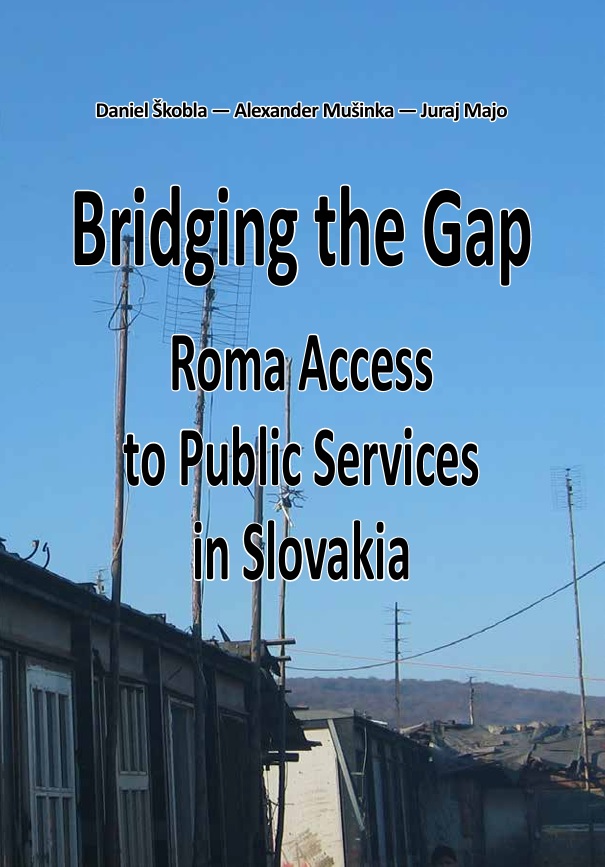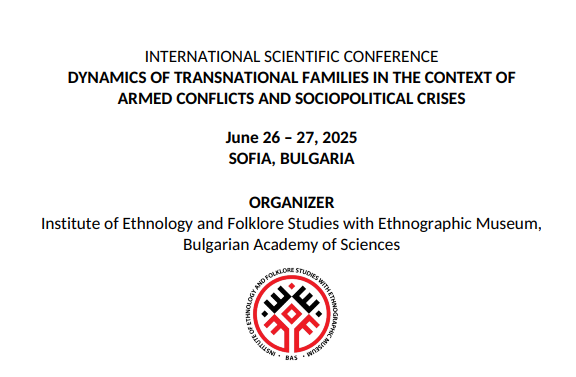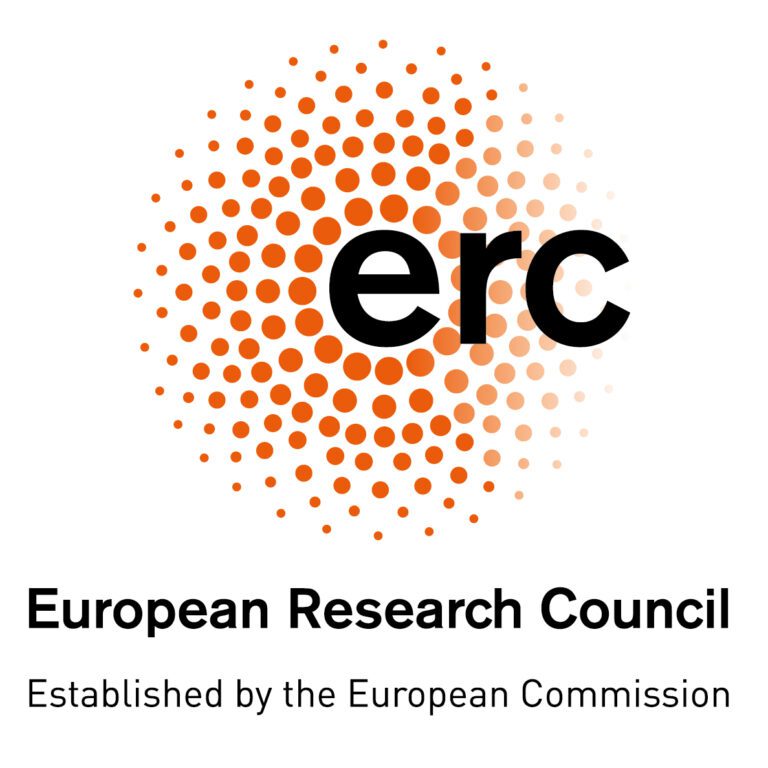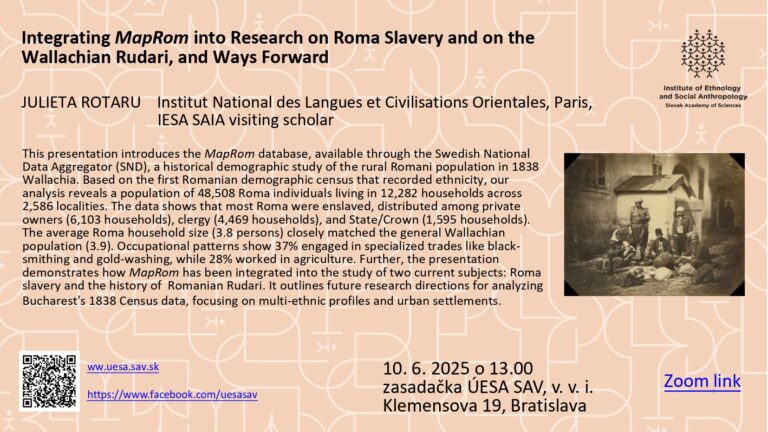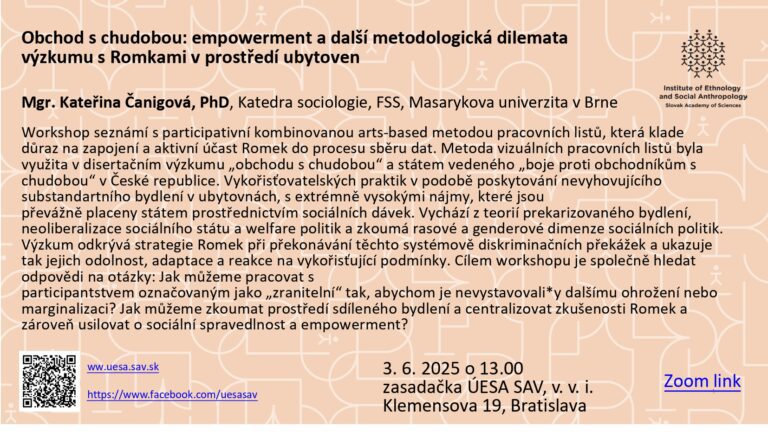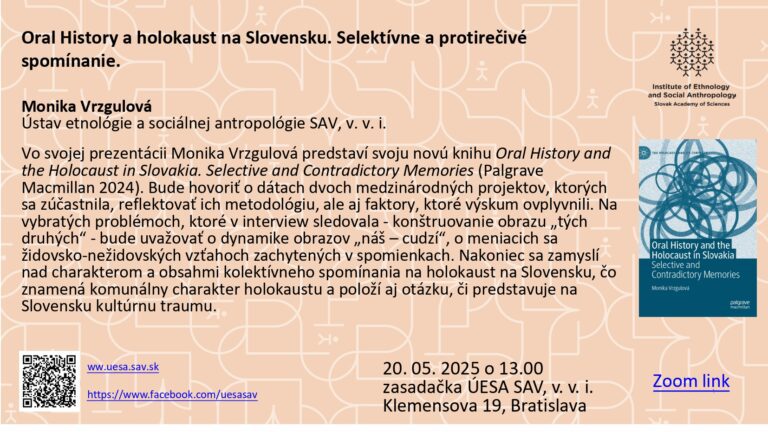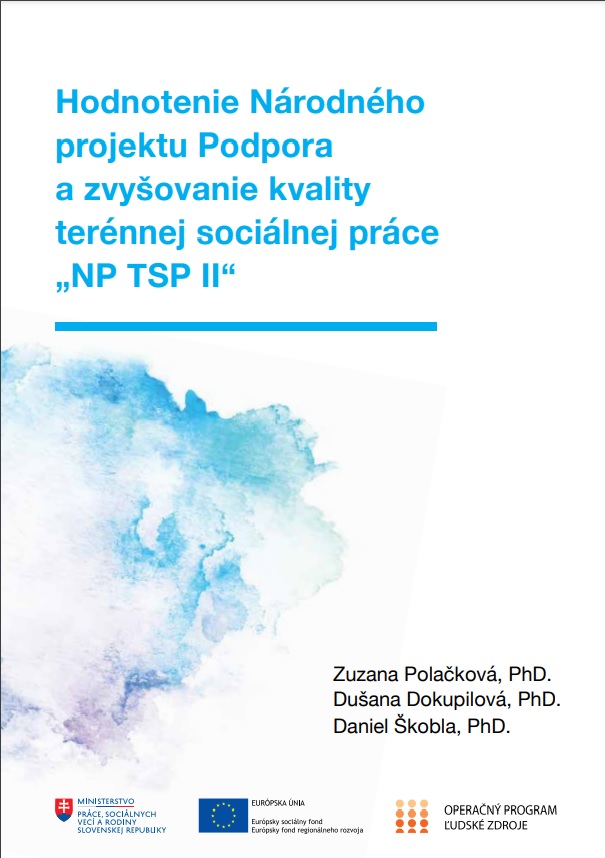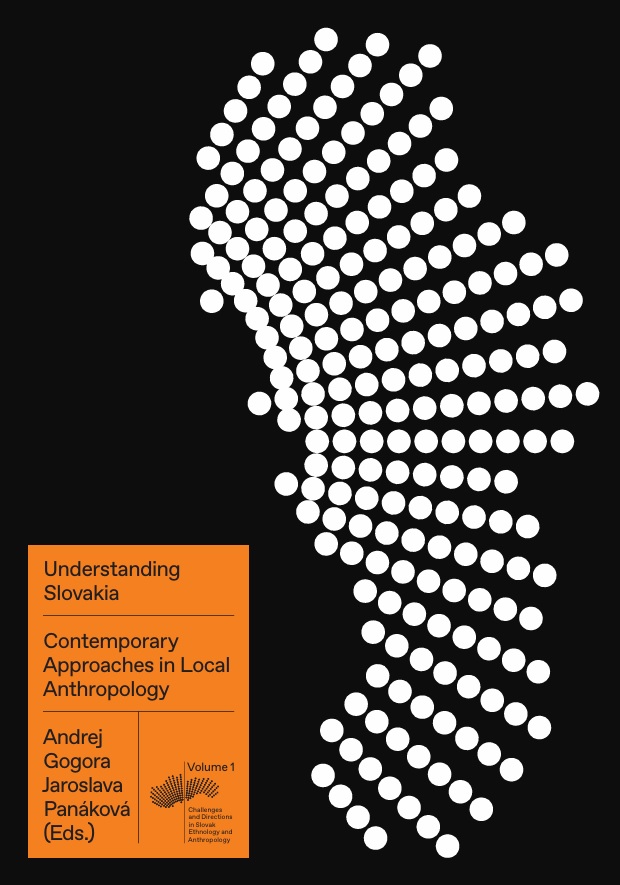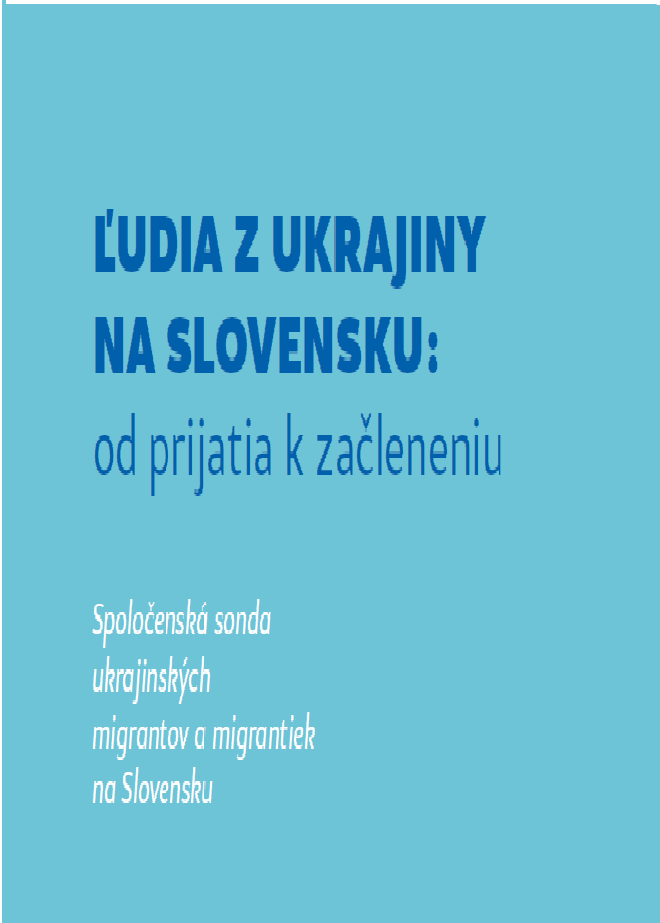Správy
Naša misia
Pracovisko vzniklo v roku 1946 ako Národopisný ústav Slovenskej akadémie vied a umení a medzi rokmi 1994-2018 niesol názov Ústav etnológie SAV. Od roku 2018 nesie názov Ústav etnológie a sociálnej antropológie SAV, a v súčasnosti je jednou z popredných inštitúcií etnologického a antropologického výskumu na Slovensku.
Naša misia
Naše výskumné zameranie je rozložené medzi základný, problémovo orientovaný a aplikačný výskum. Prispievame k hľadaniu vedeckých odpovedí na aktuálne a historické spoločenské otázky a výzvy. Realizujeme terénne výskumy na Slovensku aj v zahraničí – v strednej Európe a vo svete.

